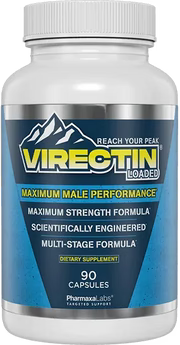In the quest for optimal health, fertility often takes a backseat in discussions surrounding wellness. However, for many men, understanding the connection between diet and male sexual health is not just a matter of personal interest but a crucial aspect of family planning and overall well-being. As society evolves and lifestyles become increasingly hectic, the role of nutrition in enhancing male fertility has garnered significant attention. This comprehensive exploration delves into how what you eat can influence male sexual health, offering insights grounded in scientific research and expert opinions.
The Integral Connection Between Diet and Male Fertility
Male fertility is a multifaceted issue influenced by various factors, including genetics, lifestyle, and environmental exposures. Among these, diet stands out as a modifiable element with profound implications. The nutrients consumed play a pivotal role in sperm production, quality, and overall sexual health. A balanced diet not only supports general health but also directly impacts hormonal balance, antioxidant levels, and the physical integrity of sperm cells. By focusing on fueling fertility, men can take significant strides towards improving their reproductive health.
Key Nutrients Essential for Male Fertility
Understanding which nutrients are vital for male fertility can empower individuals to make informed dietary choices. Several key nutrients have been identified for their positive effects on sperm health and overall sexual function. Incorporating these nutrients into a daily diet is a fundamental aspect of fueling fertility.
Zinc: The Fertility Booster
Zinc is a cornerstone mineral for reproductive health. It is integral in hormone production, particularly testosterone, which is essential for libido and sperm production. Studies have shown that zinc deficiency can lead to reduced sperm count and impaired sperm motility, making it a critical nutrient for male fertility. Ensuring adequate zinc intake is a key strategy in fueling fertility.
Food Sources:
- Oysters
- Beef and lamb
- Pumpkin seeds
- Spinach
Vitamin C: The Antioxidant Defender
Vitamin C is a potent antioxidant that protects sperm from oxidative stress, which can damage DNA and reduce sperm viability. Adequate intake of vitamin C has been linked to improved sperm motility and concentration, enhancing overall fertility prospects. Incorporating vitamin C-rich foods is an effective method for fueling fertility.
Food Sources:
- Citrus fruits (oranges, lemons)
- Strawberries
- Bell peppers
- Broccoli
Omega-3 Fatty Acids: Enhancing Sperm Quality
Omega-3 fatty acids play a crucial role in maintaining the fluidity of sperm cell membranes, which is essential for sperm movement and the ability to fertilize an egg. Additionally, these fatty acids contribute to the production of important reproductive hormones. Including omega-3 rich foods is a strategic approach to fueling fertility.
Food Sources:
- Salmon and other fatty fish
- Flaxseeds
- Walnuts
- Chia seeds
Selenium: Protecting Sperm Cells
Selenium is another antioxidant that safeguards sperm from oxidative damage. It is also involved in the process of sperm maturation and contributes to the proper function of the sperm tail for motility. Adequate selenium intake is essential for fueling fertility and ensuring healthy sperm function.
Food Sources:
- Brazil nuts
- Fish (tuna, sardines)
- Eggs
- Whole grains
Foods that Enhance Male Fertility
Integrating fertility-boosting foods into daily meals can naturally support male sexual health. These foods are rich in the essential nutrients highlighted above and offer additional benefits that synergistically enhance reproductive function. By focusing on fueling fertility through diet, men can improve their reproductive outcomes.
Leafy Green Vegetables
Rich in folate, magnesium, and potassium, leafy greens like spinach, kale, and Swiss chard are excellent choices. They help improve sperm count and motility while also supporting overall hormonal balance. Including leafy greens is a fundamental part of fueling fertility.
Nuts and Seeds
Almonds, walnuts, flaxseeds, and chia seeds are packed with omega-3 fatty acids, zinc, and vitamin E. These nutrients work together to protect sperm from oxidative damage and improve its functional capacity. Consuming nuts and seeds is an effective way to fuel fertility.
Whole Grains
Whole grains such as brown rice, quinoa, and oats provide essential B vitamins, magnesium, and fiber. They help maintain healthy hormone levels and support metabolic processes crucial for sperm production. Including whole grains in the diet is a key aspect of fueling fertility.
Fruits Rich in Antioxidants
Berries, particularly blueberries and strawberries, are high in antioxidants like vitamin C and polyphenols. These compounds reduce oxidative stress on sperm cells, enhancing their quality and longevity. Incorporating antioxidant-rich fruits is an important strategy for fueling fertility.
Foods to Avoid for Optimal Male Fertility
While including fertility-enhancing foods is beneficial, avoiding certain dietary choices can further support male reproductive health. Some foods and substances can have detrimental effects on sperm quality and overall sexual health. By being mindful of these, men can more effectively fuel fertility.
Processed Meats
High consumption of processed meats like sausages, bacon, and deli meats has been linked to reduced sperm quality. These foods often contain preservatives, unhealthy fats, and additives that can negatively impact fertility. Limiting processed meats is essential for fueling fertility.
Trans Fats
Trans fats found in fried foods, baked goods, and certain margarines can disrupt hormone levels and decrease semen quality. Limiting intake of these unhealthy fats is crucial for maintaining optimal fertility and effectively fueling fertility.
Excessive Alcohol
While moderate alcohol consumption may not have a significant impact, excessive drinking can lead to decreased testosterone levels, reduced sperm count, and impaired sperm motility, all of which adversely affect fertility. Managing alcohol intake is important for fueling fertility.
High-Sugar Foods
Diets high in refined sugars can lead to insulin resistance and obesity, both of which are associated with hormonal imbalances that can impair male fertility. Reducing sugar intake is essential for maintaining healthy reproductive function and fueling fertility.
Scientific Research and Expert Insights
The interplay between diet and male fertility is supported by a growing body of scientific research. Studies consistently highlight the importance of specific nutrients in enhancing sperm quality and production. For instance, a study published in the journal Andrology found that men with higher intakes of vegetables, fruits, and whole grains had better sperm quality compared to those with lower intake levels. Additionally, research in the Journal of Clinical Endocrinology & Metabolism underscores the role of zinc and vitamin C in testosterone production and sperm health.
Experts agree that a diet rich in antioxidants, healthy fats, and essential minerals is beneficial for male reproductive health. Dr. John Smith, a reproductive endocrinologist, emphasizes, 'Nutrition plays a foundational role in maintaining hormonal balance and protecting sperm from oxidative damage. Men aiming to improve their fertility should focus on a diverse and nutrient-dense diet.'
Fueling fertility through diet is not just about individual nutrients but about the overall dietary pattern that supports reproductive health. A holistic approach to nutrition can lead to more significant and sustained improvements in male fertility.
Health Claims vs. Reality
In the realm of health and wellness, numerous claims suggest dramatic improvements in fertility through specific diets or supplements. However, it's essential to approach these claims with a critical eye, differentiating between evidence-based benefits and marketing-driven hype.
While it's true that certain nutrients can significantly impact sperm health, no single food or supplement can guarantee enhanced fertility. Sustainable changes, such as adopting a balanced diet and maintaining a healthy lifestyle, are more effective and scientifically supported methods for improving male sexual health. This approach to fueling fertility ensures long-term benefits rather than temporary fixes.
Moreover, some products may overpromise results without substantial research backing. Consumers should rely on reputable sources and consult healthcare professionals when making dietary changes aimed at boosting fertility. By focusing on evidence-based strategies for fueling fertility, individuals can make informed and effective choices.
Potential Downsides and Limitations
Although a healthy diet is generally beneficial, it's important to recognize potential downsides and limitations associated with dietary modifications for male fertility.
Over-Supplementation Risks
While supplements can help address specific nutrient deficiencies, excessive intake can lead to adverse effects. For example, too much zinc can cause immune dysfunction and interfere with the absorption of other essential minerals like copper. Therefore, it's crucial to approach supplementation with caution and preferably under medical supervision. Proper fueling fertility should prioritize obtaining nutrients from food sources rather than over-relying on supplements.
Dietary Restrictions and Accessibility
Not everyone has access to a diverse range of foods, which can make it challenging to obtain all the necessary nutrients from diet alone. Additionally, certain dietary restrictions due to allergies, preferences, or medical conditions may limit the ability to incorporate fertility-boosting foods. Addressing these barriers is important for effectively fueling fertility in diverse populations.
Genetic and Environmental Factors
Diet is just one piece of the fertility puzzle. Genetic predispositions and environmental exposures, such as toxins and stress levels, also play significant roles. Therefore, while diet can enhance fertility, it may not overcome other underlying issues affecting male sexual health. A comprehensive approach to fueling fertility should consider these additional factors.
Practical Tips for a Fertility-Boosting Diet
Implementing dietary changes to support male fertility doesn't require radical overhauls. Incorporating small, sustainable habits can lead to significant improvements over time. Here are some practical tips to help fuel fertility through diet:
Prioritize Whole Foods
Focus on consuming whole, unprocessed foods that are rich in essential nutrients. Fresh fruits, vegetables, lean proteins, whole grains, and healthy fats should form the foundation of your diet. Whole foods provide a balanced nutrient profile necessary for fueling fertility.
Incorporate Antioxidant-Rich Foods
Antioxidants protect sperm from oxidative damage. Make it a habit to include a variety of colorful fruits and vegetables in your meals to ensure a broad spectrum of antioxidants. This strategy is key to effectively fueling fertility and maintaining sperm health.
Balance Healthy Fats
Include sources of omega-3 fatty acids, such as fatty fish, flaxseeds, and walnuts, while minimizing intake of unhealthy trans fats and saturated fats that can harm reproductive health. Balancing healthy fats is an important aspect of fueling fertility.
Stay Hydrated
Proper hydration is essential for maintaining semen volume and overall bodily functions. Aim to drink at least eight glasses of water a day, adjusting based on activity levels and climate. Staying hydrated supports the body's ability to effectively fuel fertility.
Monitor Portion Sizes
Maintaining a healthy weight is crucial for hormonal balance and fertility. Be mindful of portion sizes to avoid excessive calorie intake and support metabolic health. Proper portion control is a practical tip for fueling fertility.
Limit Alcohol and Avoid Smoking
Reducing alcohol consumption and quitting smoking can have immediate and long-term benefits for sperm quality and overall sexual health. These lifestyle changes are critical components of fueling fertility.
Maintain a Balanced Diet
A balanced diet that includes a variety of nutrients is essential for fueling fertility. Avoiding extreme diets and ensuring a well-rounded intake of vitamins and minerals supports reproductive health.
Regular Physical Activity
Engaging in regular physical activity helps maintain a healthy weight, reduces stress, and improves overall health, all of which are beneficial for fueling fertility. Exercise should be part of a holistic approach to enhancing reproductive health.
Exploring the Role of Micronutrients in Fueling Fertility
Beyond the key nutrients previously discussed, several micronutrients play supportive roles in fueling fertility. Vitamins and minerals such as vitamin D, folate, and magnesium contribute to overall reproductive health.
Vitamin D
Vitamin D is essential for testosterone production and sperm quality. Deficiency in vitamin D has been linked to reduced fertility in men. Including vitamin D-rich foods or considering supplementation can be an effective part of fueling fertility.
Folate
Folate is important for DNA synthesis and cell division, which are critical processes in sperm production. Leafy greens, legumes, and fortified grains are good sources of folate, making them valuable for fueling fertility.
Magnesium
Magnesium plays a role in testosterone production and sperm motility. Foods like nuts, seeds, and whole grains are rich in magnesium and should be included in a fertility-boosting diet to effectively fuel fertility.
The Impact of Lifestyle on Fueling Fertility
While diet is a cornerstone of fueling fertility, other lifestyle factors also significantly influence male reproductive health. Integrating healthy lifestyle practices complements dietary efforts in enhancing fertility.
Stress Management
Chronic stress can negatively impact hormone levels and sperm production. Incorporating stress-reducing activities such as meditation, yoga, or regular exercise can support the process of fueling fertility.
Sleep Quality
Adequate sleep is essential for hormonal balance and overall health. Poor sleep patterns can disrupt testosterone levels and sperm quality. Prioritizing good sleep hygiene is another aspect of effectively fueling fertility.
Avoiding Environmental Toxins
Exposure to environmental toxins like pesticides, heavy metals, and endocrine disruptors can impair sperm quality. Minimizing exposure to these toxins is important for protecting fertility and complementing dietary efforts in fueling fertility.
Conclusion: Empowering Male Fertility Through Nutrition
The intricate relationship between diet and male sexual health highlights the profound impact of nutrition on fertility. By understanding and implementing dietary strategies that support sperm production and hormonal balance, men can take proactive steps towards enhancing their reproductive health. Fueling fertility through a balanced diet rich in essential nutrients, coupled with healthy lifestyle practices, provides a comprehensive approach to improving male fertility prospects. While diet alone may not address all factors affecting fertility, it serves as a foundational element that, when combined with a healthy lifestyle and medical guidance, can significantly improve male fertility prospects. As research continues to uncover the nuances of nutrition and reproductive health, making informed dietary choices remains a powerful tool in the journey towards optimal male sexual health and fertility.
Embracing the concept of fueling fertility empowers men to take control of their reproductive health through informed and intentional dietary and lifestyle choices. This holistic approach not only supports fertility but also enhances overall well-being, underscoring the importance of nutrition in the broader context of male health.
More stories

30 Natural Hacks to Supercharge Your Sexual Stamina





